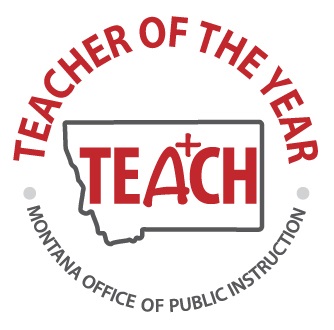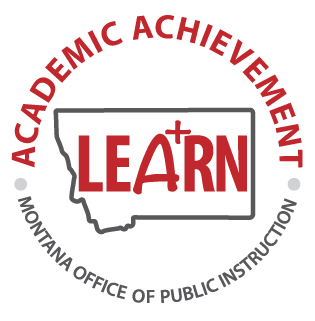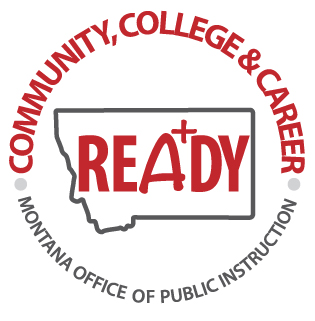ADOS2 Initial and Refresher Training Registration is OPEN
Participation is limited to 30 people per training; preference will be given to school providers who are anticipating administering this assessment.
September 26-27, 2024 8:30-4:00 Helena
October 15, 2024 8:30-4:00
STAR
This comprehensive two-day workshop provides participants with detailed examples and practice activities on how to implement the evidence-based practices identified in the National Standards Report (2009). The STAR Program, a research-based curriculum, is used to provide examples. Detailed information will be shared on the evidence-based instructional methods of:
- discrete trial training;
- pivotal response training;
- teaching through functional routines
Participants will learn how to implement these strategies through structured lesson plans and a curriculum scope and sequence. The workshop will include extensive data collection systems and participants will learn to collect and use data for instructional decision making. Workshop topics will include the use of PowerPoint lectures, video examples, presenter demonstrations, and participant "hands-on" practice.
September 9-10, 2024 8:30-4:00 Missoula
September 12-13, 2024 8:30-4:00 Great Falls
November 7-8, 2024
December 9-10, 2024
Have you ever been asked to collect data on your learners, but the thought of it fills you with dread? You don’t know where to start, or even if you did, you have no idea what to do with the data once you’ve got it.
Data. Who knew that one word could make so many people frown? When you ask people to gather data, do you find that they know it’s something they should do, but they never quite get around to it? OR are you someone who is asked to take data but you’ve never been taught how? This mini workshop will help you to become a data ninja. Through discussion, video examples, and hands-on activities you will learn the foundations of data collection. You will then use that knowledge to identify when and how to take data and finally what you should do with it after. You will also learn how to communicate with members of your team and help them to take clear, concise, and most importantly, useful data. You will leave this workshop ready to start data collection in your setting, you’ll have the skills to analyze it and then apply that information to your day-to-day teaching of the skills you are targeting.
October 4, 2024 9:00-12:00
This highly interactive training offers strategies for navigating behavior challenges with learners of all ages, in any environment. Using case studies and examples from your setting we begin the workshop highlighting the key concepts of applied behavior analysis, helping you to understand why challenging behaviors occur. We discuss the importance of designing supportive learning environments based on the Pyramid Approach to Education® framework. The next step in the workshop is to define behaviors that require intervention and establish the function of these behaviors. These skills are put into practice using our own case studies and furthermore applying this to your own learners. The second half of the workshop addresses strategies that can be used proactively and reactively to decrease the challenging behaviors that you see in your setting. As we investigate each strategy to replace or reduce a behavior you will have the opportunity to assess if that strategy will be suitable for your learner and identify the next steps to take when you return to your setting. The workshop concludes by demonstrating how you and your team can evaluate and monitor the effectiveness of your behavior plans as you put your new strategies into practice.
Learner Objectives:
- Review the basic ABA principles
- Identify the elements to creating effective learning environments: The Pyramid Approach to Education
- Identify behaviors requiring intervention
- Identify the functional control of the behavior
- Develop a behavior plan
- Identify how to assess the effectiveness of an intervention
October 25, 2024, 8:00 am- 4:00 pm Bozeman, venue TBD
Dr. Angela Barber was named Chair of the Communication Sciences and Disorders Department at Samford University in 2022. She previously served as Department Chair of the University of Alabama Department of Communicative Disorders. Barber’s teaching, clinical work, and research focus on autism and social communication in early childhood. Her primary research looks at improving accessibility to effective early identification and interventions for children with an increased likelihood for autism by building cooperative and sustainable solutions that promote health equity. As a licensed clinical Speech-Language Pathologist, she combines evidence-based practice into instructional settings and real-world applications to bridge the research-to-service gap experienced in rural and underserved areas. Barber also studies the Scholarship of Teaching and Learning in CSD Programs as it relates to preparing students to work with minimally verbal individuals. She has received grants to support her and her students’ participation in community-based research.
During this virtual training participants will learn to:
- Informally assess communication forms, functions, and motivators in the classroom.
- Identify how diverse communication styles affect academic and social learning.
- Create learning environments to support diverse language levels and communication styles.
- Develop low and high-tech Augmentative and Alternative Communication systems to support learning AAC for non-speaking and minimally-verbal students.
- Prepare effective visual supports to improve communication and reduce challenging behaviors.
- Describe the double empathy problem and identify solutions to reduce mis-attunement in the classroom environment between neurotypical and neurodiverse peers.
November 4, 2024 8:30-11:30
Picture Exchange Communication System (PECS®) is an evidence-based protocol that teaches vital communication skills such as initiation, persistence in relaying messages, picture discrimination, and basic sentence structure. After mastery of these skills, the learner likely has a large repertoire of pictures in the communication book. If the learner is not speaking, the team may need to explore a transition to a dedicated Speech Generating Device (SGD) or tablet with a communication app that will accommodate larger vocabularies and allow for continued language development. To ensure the rapid transfer of existing communication skills, the transition will require the team to assess current PECS skills and then analyze features of various apps/SGDS to select a device that will best meet the learner’s needs. Following device selection, detailed lesson plans are necessary to teach the use of the new device as a functional communication system. This workshop is appropriate for teams supporting learners who may be ready to transition from PECS to SGDs. It is also appropriate for teams working with learners who are not currently using their devices effectively.
*Please bring a Speech Generating Device (SGD) or a tablet with an AAC app to the training to use during a variety of activities
Learner Objectives:
- Review of the PECS protocol
- The unique challenges of learners with complex communication needs
- Procedures for analyzing current PECS skills
- Determining candidacy for transitioning from PECS to a Speech Generating Device
- The 5 criteria for appropriate device selection
- Preparing the learning for the transition
- Using elements of the PECS protocol to teach functional SGD use
- Problem-solving SGD use
November 15, 2024 8:00 am- 3:30 pm Bozeman, venue TBD
For more information, contact:
Katie Mattingley, Statewide Coordinator, OPI Montana Autism Education Project
Direct replies to this email will not be forwarded or received by Katie.
If you know others who wish to subscribe to this newsletter, they can do so on the subscription page.
The OPI is committed to providing reasonable accommodations to people with disabilities. If you need a reasonable accommodation, require an alternate format, or have questions concerning accessibility, contact the OPI ADA Coordinator, 406-444-3161, opiada@mt.gov, Relay Service: 711.
|





